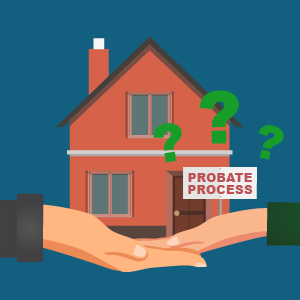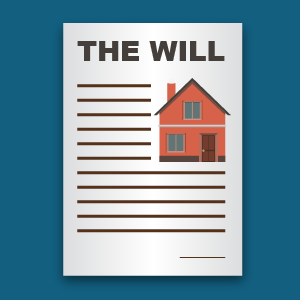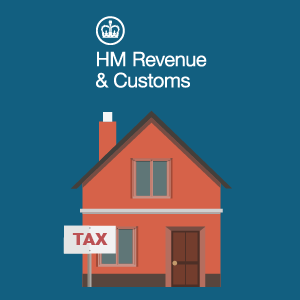1. Introduction and Getting the Best Advice
 Our aim with this guide is to run through some common issues we observe as professional buyers of inherited properties.
Our aim with this guide is to run through some common issues we observe as professional buyers of inherited properties.
You may want to skip certain parts that may not be relevant. To do this, please use the contents menu above or simply scroll down.
Navigating through probate and the legal process of physically inheriting property can seem daunting, especially with all the emotions mixed in.
However, a little bit of research and the right support often means you can find a solution to the most challenging of problems.
This means that you will achieve the best outcome, despite the difficult circumstances.
Property Solvers is also happy to help wherever we can (and offer a range of solutions based on your specific situation).
Whether you are speaking with lawyers, accountants, other quick home buying companies, estate agents or auctioneers, never feel pushed towards anything you’re 100% comfortable with.
Especially where there is property or other expensive assets, you may find that people throw different opinions at you.
Remember to take your time, ask as many questions as you need and never succumb to any pressure.
There are professionals who can help you in the right way.
Our advice is to always look for experienced legal advisors with no hidden agendas. If a solicitor drew up the will originally, for example, it is usually a good idea to use that firm. But this is not an obligation.
If you choose to move forward without legal advice, please make sure you are fully aware of the consequences of your decisions.
2. The Probate Process
 Probate is the legal process of organising the inherited estate of a person who has passed away.
Probate is the legal process of organising the inherited estate of a person who has passed away.
The estate usually consists of property, land, money, business interests, stocks, shares, investments and personal possessions.
Please note that, even if you expect to inherit part or all of the estate, you will still need to apply for probate unless:
- You have joint-ownership of the estate with your spouse or civil partner;
- You have a joint bank or building society account. However, if the person had other bank accounts probate will be required;
- The sum of money left in the estate is less £5,000;
- There is no property, land, significant business interests or shares within the estate.
The Role of the Executor
When someone leaves a Will (see the next chapter), they normally choose a person to execute the process correctly.
This person is called an executor and can be a relative, friend, solicitor or accountant. In England and Wales, an executor may be Public Trustee or an Official Solicitor (if there is no one willing and able to act).
The executor must have a ‘grant of probate’ to proceed.
His/her role is to ensure the payment of outstanding debts, taxes and other administrative costs.
They also make sure the payment of any financial gifts and the transfer of the estate to the beneficiaries happens in line with what is stated in the Will.
If there is no Will, a relative or close friend can apply for a ‘grant of letter of administration’. As an administrator, they will have the same authority as an executor.
With no valid Will, the executor or administrator usually follows (see scroll down in the next chapter).
This means that the law decides how the estate is distributed. This is based on the total value of all assets and belongings, minus any debts owed and the applicable tax.
Legal Fees for Probate Cases
In spite of the costs, many executors prefer to take on a probate solicitor to handle the entire process.
This can remove many of the headaches and ensure things are done correctly.
Probate solicitor fees usually vary depending on the complexity and size of the estate.
Professional firms will normally first spend some time undertaking a ‘fact-find’.
As long as everything is clear with regards to the estate, they should be able to give you an idea of the costs before proceeding.
It is a good idea to make sure the solicitor also has a conveyancing department to assist with any property related matters.
Some people also choose to fill out the relevant forms themselves and then use a solicitor to check through everything. If the estate’s affairs are fairly simple, this can be a good way to do things.
Starting The Probate Process
Firstly, it’s important to understand the estate’s overall value. This means undertaking the following:
Establish the Value of Assets
Assets within an estate include property, savings, stocks, shares, private pensions, jewellery, investments and other valuable items.
If a property, shares or bank account is jointly owned, then the assets will not be distributed to any beneficiaries.
Here, the assets go to the surviving joint owner (unless otherwise stated in the Will).
Find Out the Value of Any Gifts
If the person gave away any money or assets 7 years before they passed away, this must be declared.
Establish the Amount of Debt
This includes both mortgages (secured debt) as well as personal loans and credit cards (unsecured debt).
See the dealing with debts chapter for more detail on this issue.
Calculate the Value of the Estate
This is the total value of the estate minus the total value of debt.
You or the solicitor working on your behalf will need to fill in the PA1 (probate application) form, the Inheritance Tax form IHT400 (if the estate is worth over £325,000) or the Inheritance Tax form IHT205 (if the estate is worth under £325,000).
These will be sent to the closest Probate Registry Office alongside the Inheritance Tax form, death certificate and 3 copies of the Will.
You must also swear an oath once this is done.
Note that different rules apply in Scotland and Northern Ireland.
3. Dealing with The Will (or Absence of a Will)
 If you are unsure of the location of the Will, you may want to look into the options below:
If you are unsure of the location of the Will, you may want to look into the options below:
- Speaking to the Principal Registry of the Family Division. There may be a certificate of deposit which means that you can access the Will. However, if you can’t find this, it is worth asking the Registry if they have a copy. The Probate Helpline number is 0300 123 1072 (lines are open Monday to Friday 9am to 5pm);
- If the person passed away at a care home or hospital, it may be worth checking with them;
- Professional Will writing companies often send letters to beneficiaries. There may be a paper or digital copy on file which you can use to track down the Will;
- Speak to any solicitors or accountants that the person who passed away used previously;
- Banks or building societies sometimes hold a valid copy of the Will;
- The Will may be registered with a commercial organisation such as Certainty – also known as the National Will Register. Note that there is a fee to search for a Will on their database. However, this organisation can contact solicitors on your behalf.
Check that the Will is Valid
For a Will to be legally binding, the following rules apply:
- The Will writer was over 18 years old at the time;
- There is no evidence of undue pressure. For example, if there was force or influence to pass a property on to a specific person / group of people then the Will may be invalid;
- The person writing the Will must be of ‘sound mind’ (i.e. fully aware of its contents and what was signed);
- There were two adult independent witnesses present when the Will was signed;
- These two witnesses also signed the Will. The witnesses cannot be partners or beneficiaries;
- The Will should be dated.
Most specialist firms will make sure the above is done correctly.
However, some wills are not drawn up by a solicitor or a Willwriter registered at The Institute of Professional Willwriters.
You may find, for example, that a Will is handwritten on a piece of paper.
There are also templates that you can buy online stationers (Google: Will Template).
As long as the document is appropriately witnessed as described above, there is a good chance it will be deemed as valid. This is usually the case if the terms are simple.
In our experience, there are usually no problems when all the estate goes directly to a wife, husband or immediate family.
Generally speaking, however, Wills put together professionally are considered more legally watertight.
This is especially the case where the divisions of the estate are more complex.
If the Will is deemed not to be valid, the distribution of the estate will follow the rules of intestacy.
Note that there may also be a Codicil. This is a legally binding document written by the person that passed away to make changes to the Will.
Understand the Contents of the Will
If you are a beneficiary (i.e. someone written as an inheritor) and had close conversations about the Will’s contents, the process should be fairly simple.
However, where things may not be so clear, it is important to fully understand how the Will was written.
Despite the extra costs, we always suggest seeking proper legal advice especially if:
- You are not able to understand the terms of the Will;
- There are parts of the Will that seem confusing and open to interpretation;
- The estate’s affairs are complicated (for example, if there is a split between several people);
- Part or all of the estate will pass to children under the age of 18;
- Money or property is placed in some form of trust;
- Part of all of the estate consists of foreign property / properties, land or other investments;
- If the estate or property inherited was owned under a corporate entity (usually a Limited company) with more than one other shareholder;
- The person who passed away owned a business / businesses or had significant shareholdings;
- There were people who were financially dependent on the person that passed away that are not immediate family;
- The terms of the Will may be disputed.
What to Do If There is No Will – Intestacy Rules
After exploring all the avenues discussed above, if there is still no evidence of a Will, the rules of intestacy will apply.
Although this does tend to complicate matters, it is still a common occurrence.
In such circumstances, you have the legal right to inherit the estate if you were married, in a civil partnership or closely related to the person that passed away.
Note that if you were divorced, the civil partnership has legally ended or you were cohabiting as a partner, then you cannot inherit under intestacy rules.
Provided the estate is worth over £250,000, the children, grandchildren and great-grandchildren will also have the right to inherit part of the estate.
The partner will inherit all the personal property and belongings, the first £250,000 of the estate and half of the remaining estate.
The estate will include the property’s value (determined using a professional Royal Institute of Chartered Surveyors valuation). There will also be a tax deduction once everything is processed.
As stated below, even if there is no Will, where the partners were beneficial joint tenants at the time of death, the other partner will automatically inherit the share in the property.
Similarly, if there is a joint bank or building society account, the other partner will inherit all of the money within it.
Observing Intestate Rules Related to Other Members of the Family
In relation to intestacy rights for children, grandchildren and other relatives it is worth noting the following:
- Children that have unmarried parents or have not registered a civil partnership can inherit from the estate of a parent who dies intestate;
- Adopted children can also inherit the estate under the rules of intestacy;
- If the children are under the age of 18, trustees will manage the inheritance on their behalf;
- A grandchild or great-grandchild can only inherit if their parent or grandparent passed away before the intestate person. They can also inherit if their parent is living when the intestate person passes away but dies before reaching the age of 18 years old without having married or entered into a civil partnership. Here, grandchildren and great-grandchildren receive an equal share of the proportion that their parent or grandparent would have been entitled to inherit;
- Brothers, sisters, nieces, nephews and parents may also have intestacy rights. However, this will only be the case if there are no surviving spouses, civil partners, children, grandchildren or great-grandchildren. The amount of the estate may affect the right to inheritance in these circumstances. Note also that in the case of nieces and nephews, if the parent (i.e. brother or sister) directly related to the person who has passed away is also deceased, then there may be an issue with intestate inheritance;
- The process gradually filters down through to other members of the family. Other relatives will then have a right under intestacy rules in the following order: (1) grandparents, (2) uncles / aunts, (3) half-uncles/aunts, (4) cousins and (5) half cousins;
- Close friends, cohabiting partners, carers, relations by marriage cannot inherit any part of the estate if there is no Will.
In short, intestate rules are complicated and almost always require specialist legal assistance.
Bona Vacantia
Under the rules of intestacy, should there be no surviving relatives, then the estate passes to the Crown.
This is known as bona vacantia and more information can be found on the government website.
4. Dealing with Debts
 Once there is a grant of probate, any unpaid debts will need to be cleared or managed.
Once there is a grant of probate, any unpaid debts will need to be cleared or managed.
Every situation is different and much will depend on the amount owed.
Therefore, firstly, you will need to get an understanding of whether the debts are unsecured or secured:
Unsecured Debts
Also known as individual debts, these are where someone has taken out a loan in some form in his/her name.
Examples include credit cards, personal loan(s) from the bank and unpaid bills.
The bank stops payments after death and during the probate process.
Secured Debts
Where someone has taken out a loan against an item – such as a car, furniture or other household goods.
Secured loans are also taken out against an asset like a business or, more commonly, a property via a mortgage. See the section below on dealing with mortgage debt.
You may need to go through the paperwork. Or you can use a service like Check My File where you can see who the lenders are.
You will then need contact each lender individually and request statements for the outstanding debt balance.
Note that the executor may do this, provided they have Power of Attorney (authorisation to deal with the financial affairs of the estate).
Dealing with Debts in Probate Cases
After checking the terms of each loan, the executor may advise that you will need to take on the debts yourself.
Or it may make more sense to use any savings left in the estate to pay the debts off.
Provided there is enough equity in any owned property or other assets, you may also decide to use the proceeds of an eventual sale to clear what is owed (see below).
There is an order of priority for the payments of debts / costs:
It is also worth noting the following:
- If there is a guarantor responsible for any of these debts, then he/she will be liable;
- If there are joint debts, the loan contract will specify how to deal with the debts;
- There is also a chance that an insurance policy is in place to pay off the debt in the event of death. The lender(s) or a solicitor should be able to advise if so.
Please remember to deal with these issues as a priority, especially if the amount of debt is high.
Struggling to Pay off Debts After Someone Has Passed Away?
Dealing with any unpaid debts makes most people anxious and, with the added loss of a loved one, the stress may seem too much.
Please do not worry, help is at hand.
Most lenders will be sympathetic as long as you regularly communicate with them.
If you are still unsure about how to deal with the extra financial burden, the following organisations can help:
Free advice, support and guidance via a range of online resources. Shelter also has a helpline open 365 days a year (8am to 8pm on weekdays and 9am to 5pm on weekends). The regular number is 0808 800 4444. In emergency situations, you can call 0808 1644 660.
Search for information online or enter your postcode/town in the orange box to contact your local office directly.
The organisation provides education, information and advice aimed at simplifying money matters. Call 0808 808 4000 Monday-Friday 9am–8pm and Saturday 9:30am-1pm (their offices are closed on Sundays).
If the person was a business owner or shareholder and has outstanding debts, this organisation can provide you with some useful advice. Call 0800 197 6026 Monday-Friday 9am–5.30pm (offices are closed at the weekends).
A charity that provides confidential support and advice to anyone worried about loans or debt issues. Call 0800 043 4050 Monday-Friday 8am–8pm and Saturday 9:30am-3pm (their offices are closed on Sundays).
An online resource with debt and budget management advice. Please note that this is not a direct advisory service.
Jointly Held Property – What Happens When the Spouse / Partner Passes Away?
There are two ways you can jointly own an inherited home: as a beneficial joint tenancy or a tenancy in common.
Beneficial Joint Tenancies
If you were the joint owner of a property with a person that has passed away, then you will automatically inherit the other share of the property.
You become the sole legal owner, even if there is no Will or the Will states anything different.
There is no need for probate or letters of administration unless there are other non-jointly owned assets.
Tenants in Common
Each joint owner has a separate share of the property.
This means that the surviving partner / spouse does not automatically inherit the other person’s share.
When either of the joint owners passes away, that share goes to the person named in the Will.
This may not necessarily be the spouse / partner, but could be a child from a previous marriage, for example.
Probate or letters of administration are needed so that the executor can pass the share of the property to whoever inherits according to the Will or the rules of intestacy.
5. Selling Inherited Property
 Once the legal and tax processes have gone through (i.e. there is a grant of probate), you will need to start thinking about your options regarding the sale of the inherited property.
Once the legal and tax processes have gone through (i.e. there is a grant of probate), you will need to start thinking about your options regarding the sale of the inherited property.
Here are some ideas worth considering:
- If the property is your family home already, staying on is a fairly simple choice to make. However much will depend on whether there is a mortgage. Provided there is a sufficient amount of equity, and you can afford to pay the mortgage, then this is usually the best course of action;
- If you’re inheriting property as a second home, renting out your property can be a good idea. Here it will be necessary to understand your responsibilities as a landlord. If there is a mortgage, you will also have to obtain a ‘consent to let’ (this usually lasts for about 12 months);
- If you have a mortgage, it is often worth talking to the lender or a qualified mortgage broker to see if you can get a competitive deal (by remortgaging). Provided the remortgage debt is not too high, this is often a good option;
- Selling the property may be an idea, especially if the home is now too large or unfit for your requirements. Note that you can put your inherited house on the market any time you wish, however, a sale cannot complete until you have a grant of probate. Please also be sure you understand your obligations regarding taxes.
Selling an Inherited Property – The Estate Agent and Auction Route
If you decide it is better to sell up the property, using an estate agent is the most common way to get the best price.
Please note that the process often takes longer than many expect.
There will a number of associated fees to pay and you may find difficulties to sell if the property needs refurbishment and/or modernisation.
However, if the property is in a desirable area, and you are in no particular rush to sell, then there are usually no major problems.
Selling your property at auction is another option you may want to look into.
Note, however, that the process can take just as long as an estate agency sale.
Remember to take your time with any decision you make.
We would also encourage you to find out more about what we do here at Property Solvers.
In short, we operate sell house fast, property auctions and express home sale (28-day estate agency) services.
Please see the last chapter of this guide.
Selling Inherited Property with a Mortgage
If you have inherited a property with secured debt against it, the mortgage company may:
- Request for full redemption – i.e. request for you to pay back the mortgage immediately. This may mean you will need to sell the property, although most lenders will be sympathetic to your situation as long as you are keeping up with the mortgage payments. They will also be aware of the applicable probate / intestacy laws;
- Wait for proceeds of the estate to come through, the funds of which can pay down some or all of the mortgage debt. If you take out another mortgage, there may be a requirement to sign new terms;
- Request for the clearance of any outstanding mortgage debt using an endowment, life insurance or mortgage protection policy;
- Ask you to take over future mortgage payments. Again, the lender may request new mortgage terms.
If you do not know who the mortgage lender is, you may need to download the Title Register from the Land Registry or ask a solicitor to find out.
Remember to read the mortgage contract closely – especially the ‘payment after death’ section. Seeking professional legal advice where necessary.
Note that, when selling a mortgaged property, you will normally have to pay early redemption penalties. This is because the terms of the loan are ending before the official mortgage end date.
6. Selling Inherited Property – Taxes
 Please speak with a tax advisor / accountant who will make sure you comply with your obligations.
Please speak with a tax advisor / accountant who will make sure you comply with your obligations.
The main taxes to be aware of are:
Inheritance Tax
You must pay this tax on estates valued at more than £325,000.
The tax must be paid before distribution of the estate to the beneficiaries.
If you received a gift in the seven years before the person passed away, there is usually some additional tax to pay (depending on the amount).
Note that it is possible to pay Inheritance Tax in instalments.
Income Tax
This usually derives from employment, self-employment, stock / share dividends, investments, business income, residential / commercial property rental income.
Make sure the HM Revenue & Customs (HMRC) are notified so the tax calculation can be adjusted accordingly.
You may have to fill in a Self-Assessment (SA) tax return on behalf of the person that passed away.
Capital Gains Tax
This is due if you sell the property or asset during the probate process, and the value increased since the person passed away.
The amount of increase determines the amount of tax owed.
If you keep the inherited property and live in it as your own home (and not rent it out), then you will not be subject to Capital Gains Tax.
Remember, the HM Revenue & Customs (tax authority) will run through the details of the estate carefully.
Inheritance Tax Scams
Please also be aware of property inheritance tax scam artists. They extort money from estates by duping people in various ways.
Alarm bells should ring if you are offered a lump sum cash payment in the future or some kind fast equity release.
You can check if legal professionals are regulated by the Law Society.
Accountant and tax advisor credentials can be checked at the Chartered Accountants in England and Wales, the Association of Chartered Certified Accountants (ACCA) and the Chartered Institute of Taxation (CIOT).
Remember to also contact the HMRC Probate and Inheritance Tax Helpline on 0300 123 1072 if you have any further doubts.
7. Property Solvers – Inherited Property Buyers
 If you decide to simply sell the inherited property, we would be happy to have a no-obligation conversation.
If you decide to simply sell the inherited property, we would be happy to have a no-obligation conversation.
We know that this is a very stressful period and our aim is to find the best solution.
Before discussing how we can get the property sold, we will start by exploring all of your options.
There is often a very simple solution to what may seem like a complicated situation.
However, many people do not want the extra burden of keeping the inherited house. Others often prefer to get the property sold as a means of removing any emotional attachment and move on with life.
In such circumstances, a quick sale through Property Solvers can be the most appropriate choice…
Quick Home Buyers (7-Day Fast Sale)
If you’re an inherited property owner looking for a quick cash sale, Property Solvers may be the solution for you.
Below are some of the key benefits…
- You don’t like dealing with estate agents and you want to avoid the hassles that come with the hassles of an open market sale. Examples may include countless viewings, ‘for sale’ signs, drawn-out processes, lack of privacy etc.;
- We are private cash buyers of properties in any condition. Even if your property needs a lot of refurbishment, we’ll happily take it on;
- As direct buyers, there won’t be any estate agency or solicitor fees to pay;
- As we don’t rely on external finance like mortgages, we’ll complete on the sale in 7 to 28 days – or in line with your own timeframes;
- If you need a cash advance for whatever reason, we can organise it;
- The sale is 100% guaranteed and in no way would we drop the price at the last minute;
- You won’t incur empty property council tax, insurance and other bills;
- With a quick sale of the inherited house, you may also avoid additional probate solicitor fees;
- In short, we’ll provide you with a completely stress and hassle-free sale.
For more information, please visit our inherited / probate property and our how we work pages.
Please also feel free to contact us 24/7 (freephone from your mobile) on 0800 044 3733 or email us at info@propertysolvers.co.uk.
Express Home Sale (28-Day Estate Agency Sale)
At our express home sale service, we do things differently. Our focus is on achieving a quick sale but at the best price possible with no up-front fees.
We take our local knowledge of buying and selling homes for over 16 years and aim to get you an offer within just 28 days.
We price properties to sell while still achieving maximum value.
Our strategy is different in that we believe the best time to sell a house is in the first two weeks of a house going on the market. This is when the interest and excitement are at their the highest.
What’s more, have no tie-ins whatsoever on our sales contracts. If you’re not happy with our service, you’re free to leave with no questions asked.
Below are some of the other benefits:
- Floorplans and professional photography (we won’t publish online until you’re 100% happy);
- A high impact FOR SALE board in front of your property;
- Access to all major property portals including Rightmove, Zoopla, Prime Location, the House Shop, Home.co.uk and many more. See where we advertise;
- Accompanied viewings (including weekends);
- 24/7 enquiry line/chat service (we are always available to organise a viewing or to receive an offer);
- Weekly sales reports (with up-to-date information from Rightmove and Zoopla);
- Complete sales progression;
- No sale, no fee.
We would be more than happy to give you a free valuation and are more than happy to arrange a visit at a convenient time.
For a detailed explanation of our process please see our express house sale how we work page.
Please also feel free to contact us 24/7 (freephone from your mobile) on 0800 044 3733 or email us at info@propertysolvers.co.uk.
Disclaimer
Please note that the Directors at Property Solvers Limited are not solicitors, accountants or inheritance tax specialists. Although we make every effort to provide complete and accurate information, Property Solvers makes no warranties, express or implied, or representations as to the accuracy of content in this blog post.
You should always seek professional advice before making any decision, especially when it relates to a property or other assets of significant value.
Frequently Asked Questions
There should not be any issues with you selling the property in this scenario.
However, it’s worth verifying your position with the probate solicitor to ensure there are no restrictions on your ability to deal with the house sale. Things could get complicated if there are other beneficiaries who have legally shared ownership of the property.
Please note that you will have to wait for full probate to be granted before you can sell the house.
We are happy to make some recommendations (please feel free to email us at info@propertysolvers.co.uk).
It’s worth noting that you will probably need to instruct a separate solicitor to undertake the conveyancing process.
Most probate solicitors have colleagues or associates within the firm who will be able to deal with the inherited property sale. It indeed makes sense to move forward with the same firm as the solicitors can work together to ensure things move forward smoothly.
As the terms of the Will must always be met, the probate solicitor may place a legal charge on the property (registered at HM Land Registry) until it’s sold.
At the point of completion, the stated percentage of the property’s value (post tax) that goes to charity will be deducted from the proceeds of sale.
Note that the situation could be complicated if there are secured debts against the inherited house. In these scenarios, it would be the percentage of the equity remaining after the sale that will be passed on to the nominated charity.


